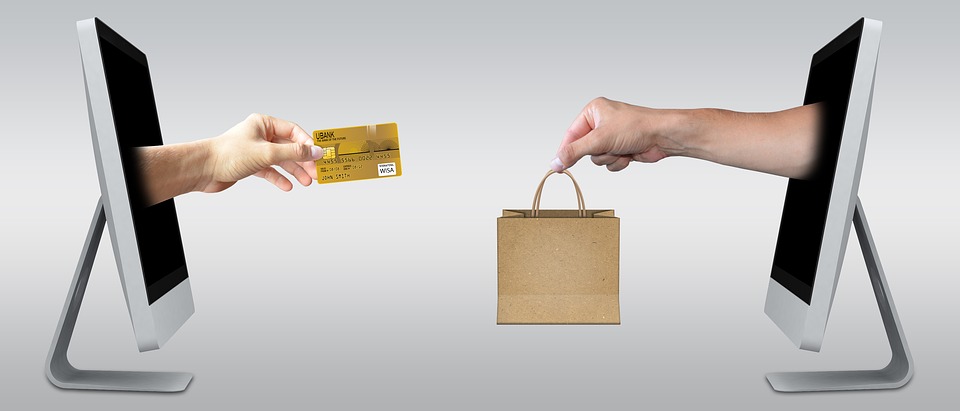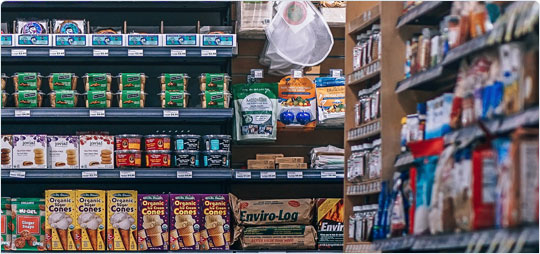When you want to develop an e-commerce store there is the following step which required carefully thinking beforehand, in whatever vertical you are focusing on and planning to make a foray into.
- A quality eCommerce platform – Software
- A way to accept the payments – The combination between a merchant account, payment processor, and payment gateway
A quality e-commerce platform: There are a plethora of software platforms available in the market. For companies, the e-commerce solution/platform is now critical to growing existing customers, acquiring new customers, and protecting market share from Market Place companies.
Retailers and manufacturers are upgrading their commerce infrastructure to capture and — very importantly — retain demanding channel-agnostic customers. Companies have always looked to commerce suite vendors to support basic (and now fairly commoditized) capabilities like running an online catalog, shopping cart, promotions, and loyalty programs. However, with customers now expecting deeper research experiences and richer purchase journeys, vendors must deliver new capabilities both on the back end around fulfillment like — distributed order management, real-time inventory location, and its fulfillment, personalization, and innovative customer experiences. When you are giving your customer personalized recommendations while he is shopping, you give him options he may not have known. Increasing his choices leads to increasing the number of items per sale and the amount per purchase. This optimizes your site’s revenue and strengthens your bottom line and this creates customer loyalty in time.
Other concepts like — Buying online and picking from the store are also coming-up in a big way.
Every e-commerce software platform company for the customer and promotes their solution but the onus would be on the customer to select the solution and the best fit. One of the vital points is that the selected solution/platform not only caters to their present requirement but can cater to the requirement in time to come. Before making a decision take a 360-degree view of the various eCommerce platforms available committing, this is so important today, as the barrier to entry for new platforms is so low. But, half of them fail in the first year. The last thing you want is to commit to such a new eCommerce platform and have it go under, taking your business with it.
Product maturity is also a vital thing; this shows how the company has evolved its product, and what progress it has made with time and this also helps in analyzing the customer base. And last but not the least, faster implementation – Days are gone for year-long implementation and heavy IT footprints.
A way to accept the payments: It sounds simple at first, but three elements come into play for taking those payments from customers and getting them into your account:
- A merchant account
- A payment processor
- A payment gateway
Now you might be wondering, what’s the difference between a payment gateway, payment processor, and merchant account? Mainly, between Payment Processor & Payment Gateway, because generally, the name itself is confusing. That’s what we’re here to discuss. All three of these elements work together to transfer money from the customer to the merchant, but it helps to understand what each of them does throughout the process.
Payment Gateway: A payment gateway is your doorway to making sales online. A payment gateway will allow you to charge your customer’s credit/debit card with the purchase he/she makes online.
Just like a physical point of sales terminal at your brick-and-mortar retail store, the Payment Gateway authorizes you to take card payments directly from your website. The payment gateway acts as a mediator between the transactions that take place on your website and the payment processor. This is needed because it is prohibited, due to security reasons, to transmit transaction information directly from your website to a payment processor. Most online merchant accounts come with a payment gateway.
Payment Processor: Payment processors are the financial institutions/companies that work in the background to provide all the payment processing services used by an online merchant. These companies usually have partnerships with other companies that directly deal with consumers or merchants. The payment processor connects to the merchant account and payment gateway, quickly passing information back and forth, keeping it secure and almost prompt for the end-user. Payment processors make reselling agreements with payment gateways or merchant account providers to provide their services directly to internet merchants. Some payment processors do provide direct merchant services, but most companies focus on processing payments only.
Choosing your payment processor isn’t a decision that is merely depending on the person who’ll be in charge of the finance. A payment processor is vital for ensuring you have a good conversion rate so it’s a decision you don’t want to take casually. A payment processor can be indirectly involved with all of the following elements:
- Customer
- Business Owner
- Payment Gateway
- Credit/Debit card company of the customer purchasing
- Bank of your business
About Merchant Account: Merchant accounts are the types of bank accounts that authorize merchants to accept credit or debit card payments online. These accounts are required and necessary if you want to use a payment gateway to process transactions from your website, it allows you to accept recurring card payments from your customer.
Merchant accounts are often called MIDs (or merchant IDs). Many payment processing and payment gateway companies provide merchant accounts. These accounts can also be opened with some large banks that provide such services. In most cases, Independent sales organizations (ISOs) or Member Service Providers (MSPs) provide these accounts. These organizations have agreements with payment processors. In addition to this, independent contractors or Agents of ISOs also provide Merchant accounts.
In all cases, to acquire a merchant account, one must have some sort of arrangement with a payment processor to charge a customer’s credit/debit card.
There are a variety of payment gateways and payment processors out there. They vary in monthly fees and transaction costs. It is also vital to choose the right company for your merchant account if you plan to run a profitable online business. A merchant account has a variety of fees, some charge on time intervals while others on the percentage basis of the transaction.

 (+91) 22
6680 8500
(+91) 22
6680 8500  +1-949-239-7435
+1-949-239-7435 +44-20-3137-7435
+44-20-3137-7435
 Octashop
Octashop















